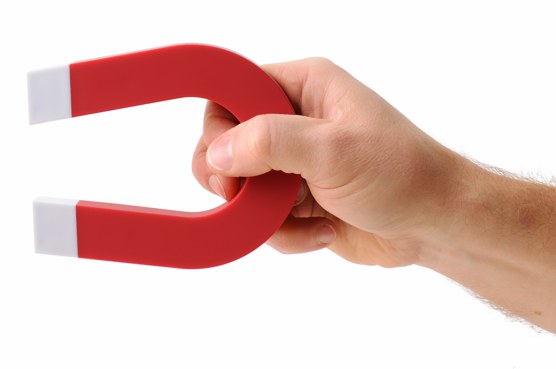 The Law of Attraction (LoA) has excited and inspired people. It is also riddled with controversy and confusion.
The Law of Attraction (LoA) has excited and inspired people. It is also riddled with controversy and confusion.
Let’s examine five common objections, and separate the wheat from the chaff, what is valid and what is not about this powerful force.
1. “It’s selfish.”
The Secret shared many ways to attract things into your life, such as money and relationships. However, it notably lacked any way to attract things into your life that go beyond self-interest, such as helping others, contributing, or serving a larger cause.
This objection of the LoA being too selfish and materialistic is not a problem with the “law.” The law describes an energy and force akin to gravity or magnetism. It has no agenda.
People will attract things based on their focus, using their thoughts, feelings and actions. So how you use the Law of Attraction is up to you, the user.
2. “It’s too simplistic, merely sugar-coating reality.”
Feeling good is essential — it raises your vibrations up so you can attract things and manifest them into form. Yet understanding the Law of Attraction takes us beyond simply happy faces.
Ignoring problems and obstacles in life (watch out for that hole!) could be a form of denial with unfortunate results.
There is a place for idealism and envisioning wonderful possibilities. In fact, our imagination is what stokes the Law of Attraction. Yet we are not perfect and things happen.
The best laid plans may not work out. We can’t know how things will unfold. Life is too vast and complex for that.
Yet it’s still good to have a direction, a north star, guideposts for what you want. So there is a place for planning and trusting, idealism and realism, faith and good works.
3. “The law of attraction is irrational and not scientific.”
The LoA does embrace “Whatever the mind can conceive and believe, it can achieve” (Napoleon Hill). As our world accelerates, changing at ever-increasing speed, more is possible and coming into being, from robotics to nanotechnology to the next amazing thing.
Also, the placebo effect has demonstrated in numerous studies that what a person thinks or believes can definitely affect his or her health. Placebos (sugar pills) work about as well anti-depressant drugs for example (and without the side effects)..
Or as one book title had it: Your body believes every word you say.
On another front, epigenetics (the study of gene behavior) has shown that our thoughts do indeed influence our cells.
Taking responsibility for yourself is essential. Just letting your angels take care of everything is a poor strategy, with possible negative consequences.
4. “The law of attraction blames the victim or patient.”
Yes, we do attract things into our lives including unwanted things, if only unconsciously. If we are focusing on failing and things not happening, then we can manifest corresponding results.
If you are about to drive a golf ball, you definitely want to recognize the sand trap ahead. Yet when you hit the ball, you want to be focusing on the green, not the trap.
At the same time, life is a mystery.
As philosopher Aldous Huxley said, “I believe in the profound and unfathomable mystery of life… which has a … divine quality about it.”
Things may happen for reasons beyond conscious comprehension. For mystical reasons, we may want to experience or address certain areas that we wouldn’t ordinarily, such as health or money challenges.
Yes, we do attract things into our lives including unwanted things, if only unconsciously. If we are focusing on failing and things not happening, then we can manifest those results.
5. “It doesn’t work.”
Two points here:
First, are we using the Law of Attraction consciously or unconsciously? Are we focusing on what we don’t want (negative goal setting), such as “I can’t get out of debt”?
Science shows such pessimistic focus constricts the brain, and minimizes its ability to see different possibilities.
To work best, the LoA takes a certain amount of self-awareness. You need to monitor your self talk and program yourself consciously for a positive outcome (“More money is flowing to me,” rather than “I keep being in debt.”)
New thoughts that we mentally rehearse actually create new connections in the brain, then we act on those new thoughts.
Also do you have a clear picture of what you do want? See or visualize the resources coming to you. Align your action to what you want.
Second, as writer Mitch Horowitz points out, there are “mechanics, chance and physical limitations” affecting us.
Natural disasters occur. Other laws, like gravity, come into play. There are higher levels of creation – beyond human consciousness – also at work, those which transcend our understanding.
The Law of Attraction holds powerful truths for us. Yet it has complexity and cannot be fully understood. It’s still well worth understanding as much as we can, and applying it wherever possible.

